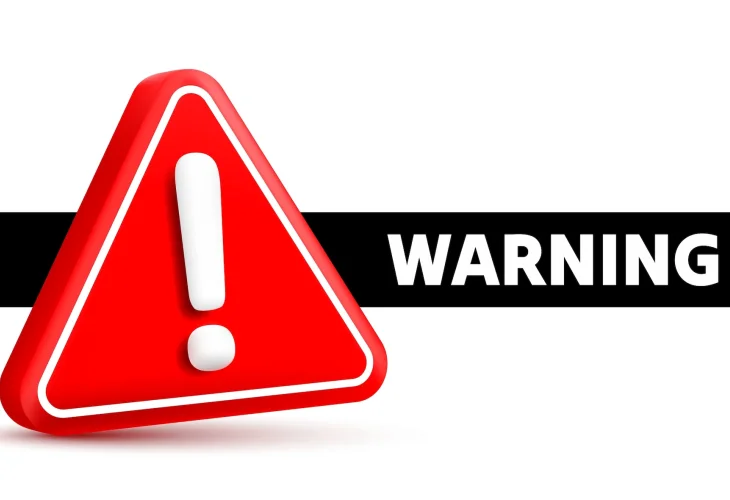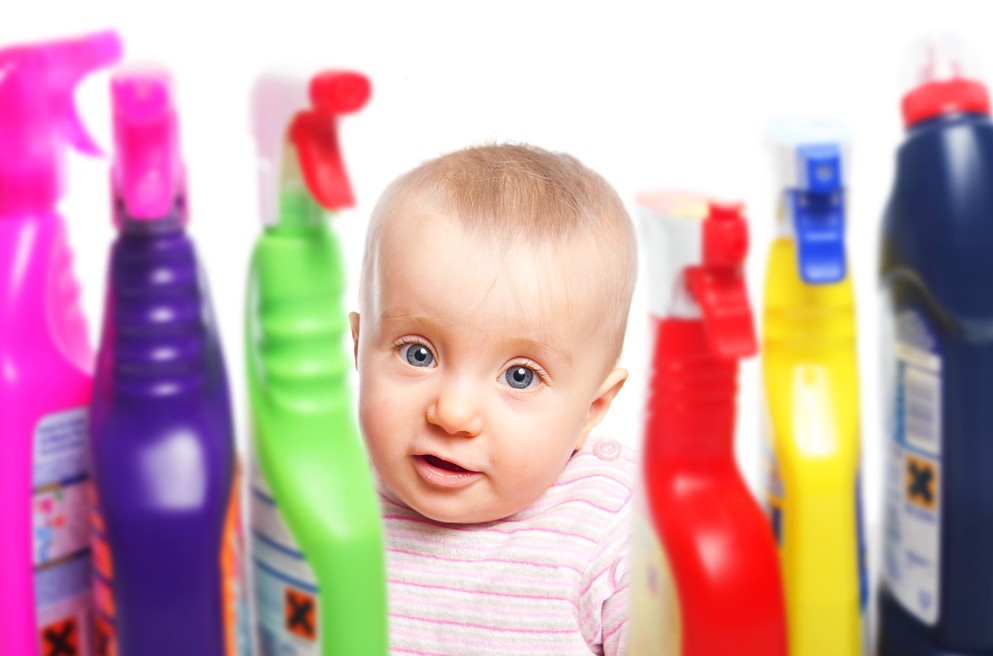Health and Nutrition
Understanding the Safety Risks in Everyday Cleaning Products
Cleaning agents, while effective, can pose serious health risks. Each year, tens of thousands suffer related injuries during Passover cleaning sprees, with some cases result in severe harm. Experts offer guidance on avoiding such dangers.

Passover is a holiday of cleaning, renewal, and refreshment. Unfortunately, it has also become a holiday marked by tragedies. It’s difficult and saddening to acknowledge, but as Passover—known for its deep cleaning and home refreshing—approaches, we see a yearly rise in household accidents, many involving children. Here’s how we can prevent it.
Data from Rambam Medical Center's National Poison Information Center reveals a rise in toxic exposures in the week leading up to Passover annually. In 2017, there were 961 reported cases, nearly half involving children under the age of six. Moreover, 51% of these exposures on Passover week involve chemicals and 40% involve medications.
"I'll share some harsh truths," warns Prof. Yedidya Ben-Tor, Director of the Poison Center at Rambam, at the start of our conversation, "Sadly, for the past fifteen years, we've been issuing public warnings each year about accidents stemming from improper cleaning product use. Despite our repeated alerts, we see no improvement. It's as if our words go unheard because awareness isn't rising."
Homemade Poison
Prof. Ben-Tor continues, "The facts speak for themselves. We receive about 40,000 inquiries annually, with a significant number flooding in just before Passover, especially in the two weeks before. After the holiday, there's a dramatic drop. Ahead of Rosh Hashanah, we also notice an increase, though it's not as clear as the Pre-Passover increase."

What do these inquiries pertain to? "The cases are numerous and varied," says Prof. Ben-Tor. "They range from non-threatening incidents where our role is to reassure panicked parents. For example, anyone who buys new shoes knows there's a small paper sachet inside with a moisture-absorbing substance. It says 'not for consumption,' and before Passover, there's a spike in exposure to this material. The reason is clear: people purchase new shoes for children who, in turn, often come into contact with this substance.
"Luckily," he notes, "the material in shoe boxes isn't hazardous. If tasted, nothing happens, and there's no need to panic. However, parents get terribly anxious when their child opens the sachet and tastes it, and I understand because it says: 'not for consumption.' Some even visit the emergency room because of it."
On the other hand, Prof. Ben-Tor points out there are substances that can be extremely dangerous, causing severe injuries and, in extreme instances, even death G-d forbid. "Despite this," he highlights, "our surveys indicate the public doesn't bother storing these life-threatening products in locked or high cabinets out of children's reach."
What products are we talking about?
"I refer to items like oven cleaners and grease removers generally containing a hazardous substance that causes burns. Safety guidelines mandate that these products get marketed in childproof packaging. Recently, we've also advocated for reducing the active ingredients concentration in products to prevent severe incidents. Manufacturers typically comply, which is a very positive step. Nonetheless, incidents with these substances still occur. The danger is, of course, significant."
Another highly dangerous product, among many others, is drain unclogging solutions. "These are materials with a strong acid base. At one point, we considered a blanket directive to remove this product from the market, but then arguments arose: 'What about low-income individuals? Are we suggesting they pay a plumber just because some can't handle these substances properly?' So, we kept it available but insist on lower active substance concentrations from manufacturers and hope the public realizes it's a first-degree hazard."
Israelis Don’t Read Instructions
How can it be explained that these accidents repeat annually? Why isn't awareness growing? Is there possibly insufficient regulation?
In a conversation with Vered Oren from the Standards Institute, she attempts an explanation: "The Standards Institute indeed oversees this issue. Our team ensures cleaning products are packaged safely for children and the concentration isn't hazardous, but if someone leaves a bottle open, mixes cleaners, or to save money pours what's left into a drinking glass intending to use later - that’s beyond our control and can lead to disasters in a heartbeat."
Oren also notes that part of the problem is, according to studies, Israelis generally don't read usage instructions.
In speaking with an enforcement spokesperson on the regulations, they add: "We know of cases where outdated cleaning products remain on store shelves. This poses a grave danger, as expired acids and substances can become extra dangerous. It's important to note that before using bleach, check the product's expiry date because the active ingredient dissipates over time. The expiry date is typically a year from the manufacture day."
What can still be done? How can we protect ourselves from these dangerous substances?
Vered Oren offers several tips: "Firstly, make sure to read the product's instructions and pay attention to labels indicating risks and safety warnings. Follow each product's specific guidelines. After reading, remember - do not mix cleaning agents! Chemical reactions could form new, highly toxic substances, occasionally resulting in extremely dangerous outcomes."
Oren also emphasizes, "Do not smoke while using cleaning agents or even nearby, especially when using flammable materials or unblocking solutions that contain caustic soda - sodium hydroxide."
Regarding storage, Oren advises: "Do not store them near food. It’s recommended to store cleaning agents, degreasers, drain openers (sodium hydroxide), and bleach separately from toilet cleaners and descalers. Ensure cleaners remain in their original packaging to prevent accidents from misidentifying contents."
If you've reached the moment of use, she pleads, pay special attention to see if the cleaning agent requires protective gear such as gloves, mask, safety goggles, or a spray distance limitation. These indications appear on the packaging."
Children Could Pay the Price
It's clear that despite safety packaging and labeling, cleaning product warnings aren't enough to protect children, as per Beterem's data.
"The pattern repeats every year," states Orly Sleving, Beterem's CEO, "because intensive cleaning before Passover involves heavy use of cleaning chemicals, paints, and pesticides. These substances are often within children's reach, in open containers, sometimes transferred to bottles or drinking cups. Furthermore, during this period, medicine cabinets are refreshed, leading to medications often being discarded, leaving them accessible to children."
She affirms the chief victims are predominantly children: "Since it's holiday break, kids are home, often unsupervised, making them prone to household accidents and primarily poisonings."
Be sure to take extra precaution to keep all these products and medications out of the reach of children at all times!
Sleving offers some tips, particularly concerning children:
Cleaning Products: Keep far from children’s reach - in high or locked places. Right after usage, return them to the proper place and seal the container to prevent ingestion, inhalation of toxic substances, or burns.
Full adherence to the original packaging for cleaning agents and medications is recommended. Do not store cleaning products in drinking bottles, even if the container states "poisonous"- young children don't read.
Carefully reading product usage instructions before use and paying special attention to warnings can significantly benefit both adults and children and decrease the potential risks.
Safely remove unused or expired medications, cleaning agents, pesticides, paints, and thinners from the home, ensuring they're out of children's reach.
There's also the most effective advice ever: Simple substances like baking soda, vinegar, lemon, and water can work wonders. Sometimes even simple dish soap suffices without resorting to 'heavy' materials. Maybe try these options first before opting for stronger chemicals?
Moreover, Prof. Ben-Tor highlights: "We predict cleaning product-related injuries will always occur. It’s not something we can eliminate entirely. It's akin to aiming for zero road accidents - impossible. However, raising awareness and reducing injuries is certainly achievable. It's up to us, and with a bit of awareness and care, and of course with Hashem'shelp, we can make a difference and save lives."
Important Note: In any case of exposure or suspicion of exposure to toxic substances, seek medical assistance or contact the Rambam Poison Information Center at 04-8541900

